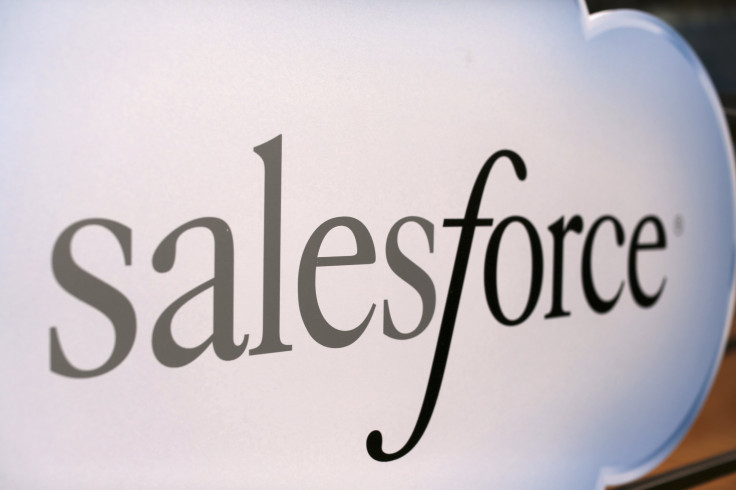Adobe And Salesforce Fight For Dominance In Marketing Software

Adobe (NASDAQ:ADBE) and Salesforce (NYSE:CRM) have very different origin stories. Adobe's roots are in selling technical software for creative professionals (i.e. Photoshop). Salesforce's legacy is in software for customer relationship management (CRM) systems. Both companies have expanded into the large and growing market for enterprise marketing software and are using similar tactics, but which company is winning in this expanding software-as-a-service segment of the market?
The opportunity in enterprise marketing software
To take a step back, enterprise marketing software describes a wide field of solutions ranging from helping companies buy advertising to collecting data on customers.
Salesforce has estimated the market size is at $31 billion and growing at a 14%-per-year rate. Adobe estimates the market as being as big as $53.2 billion and growing at a 34% rate. The estimates are different because the two companies are playing slightly different games. Salesforce's marketing software focuses on customer database analytics and campaign planning. Adobe does campaign planning and customer analytics, but it also has solutions for executing the purchase of advertising -- which is nearly a $20 billion market.
Salesforce: cross-selling with strategic acquisitions
Salesforce has one big advantage when it comes to selling marketing software: It controls the largest CRM. Companies around the world already store their customer data in Salesforce's software. It's not a leap for those companies to extend the relationship and use the same provider to take that customer data and do more with it.
And Salesforce has used this relationship to its advantage by aggressively cross-selling additional services, including the ability to better analyze the data, capture more data, create campaigns, and personalize advertising.
Of course, Salesforce hasn't always had all of these additional capabilities in its existing software. To quickly add features, the company has made a number of targeted acquisitions over the years. As my colleague Brian Carey has pointed out, in recent years, Salesforce has made a number of interesting acquisitions:
- Datorama -- A marketing analytics platform acquired in 2018 for $766 million
- Demandware -- An e-commerce solution acquired in 2016 for $2.8 billion
- ExactTarget -- An email marketing tool acquired in 2013 for $2.5 billion
- Krux -- An ad tech business acquired in 2016 for $742 million
- Radian6 -- A social media monitoring platform acquired in 2011 for $337 million
Balancing its ability to cross-sell with buying new capabilities has enabled Salesforce to steadily expand its solutions to its large CRM customer base while filling in product holes in the large marketing software market.
Adobe: focused on acquisitions
When Adobe started to get into the marketing software business a decade ago, it didn't have a large base of enterprise software customers to draw from. To this day, the company mostly sells software to designers and creative types who are not directly involved in creating campaigns or buying advertising.
However, Adobe does have two important things going for it:
- Its creative software business generates significant free cash flow
- Its management team knows how to build and run software businesses
Using its substantial free cash flow and its skill set in building its software business, the company became an aggressive buyer of marketing and advertising software businesses. Adobe has purchased a number of businesses, but because it maintained its healthy cash flow, it hasn't accumulated a debt-racked balance sheet.
Over the past two years, Adobe has accelerated its acquisition binge, purchasing three software businesses for nearly $7 billion:
- Marketo -- a marketing engagement platform acquired for $4.7 billion in 2018
- Magento -- an e-commerce shopping platform acquired for $1.6 billion in 2018
- TubeMogul -- a video advertising platform acquired for $560 million in 2017
Despite starting with fewer marketing solutions than Salesforce, Adobe has managed to develop a more complete marketing, advertising, and commerce software suite for enterprise clients.
Who's winning?
It can be argued that Adobe is "winning" because it has a broader coverage of marketing solutions that enable it to serve clients from the campaign planning stage all the way to the execution of that plan. Salesforce, by contrast, is more focused on helping companies plan campaigns and has fewer tools for execution.
From a pure numbers perspective, Adobe's marketing software business produced $2.4 billion in fiscal 2018 revenue vs. Salesforce's $1.9 billion of marketing revenue. That being said, Salesforce's control of the largest CRM shouldn't be underestimated. Both companies have built formidable enterprise marketing businesses over the past 20 years. So, Adobe might be winning, but neither company is losing.
This article originally appeared in the Motley Fool.
Luis Sanchez owns shares of Adobe Systems. The Motley Fool owns shares of and recommends Salesforce.com. The Motley Fool recommends Adobe Systems. The Motley Fool has a disclosure policy.





















